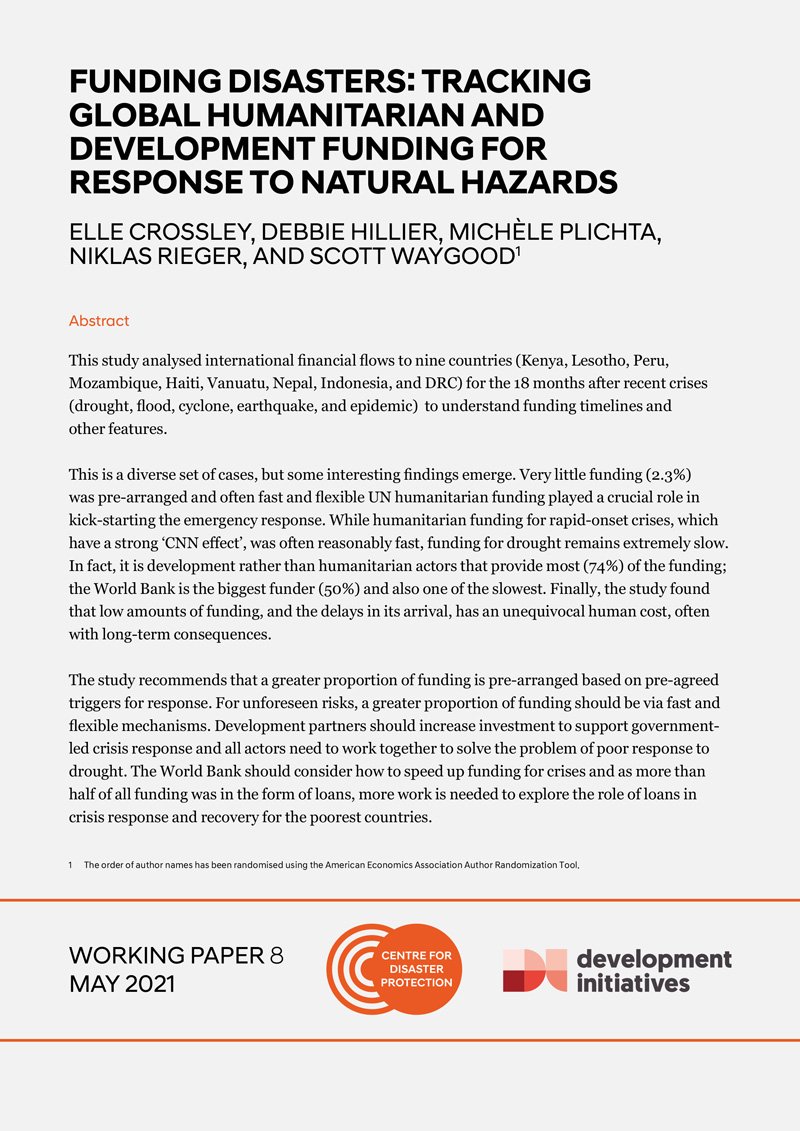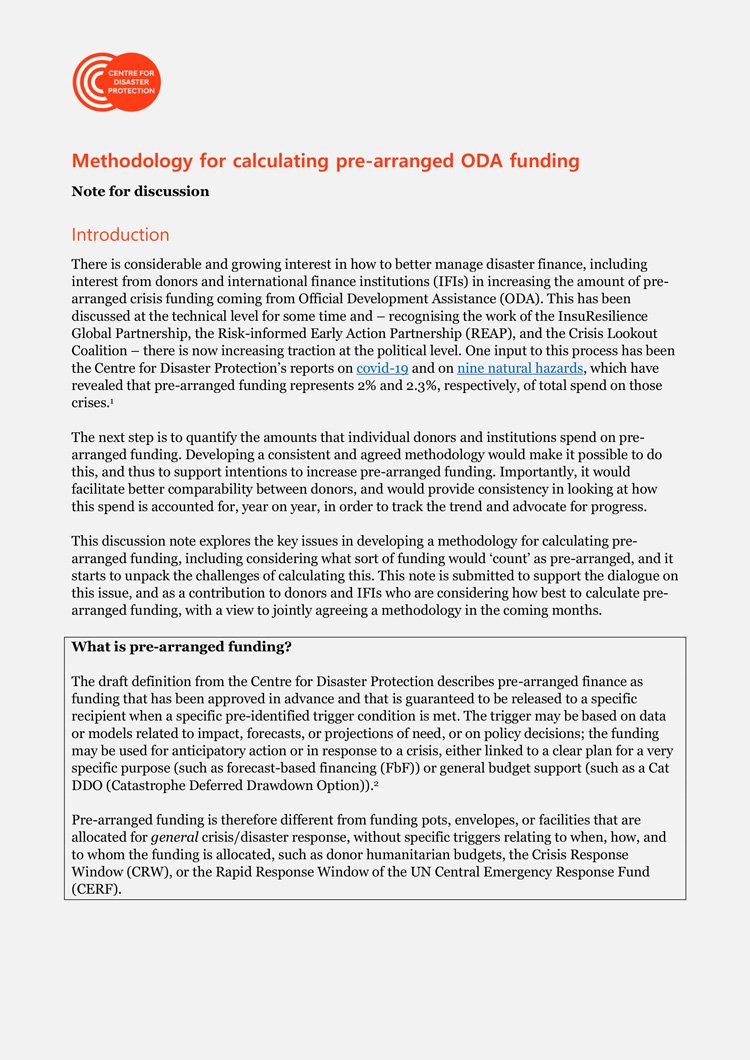
PUBLICATIONS CENTRE

MALAWI ANTICIPATORY ACTION: PROCESS LEARNING ON TRIGGER DEVELOPMENT
Building on growing evidence that acting prior to the onset of predictable shocks is significantly faster, more dignified, and more cost effective than traditional humanitarian response, UN OCHA has been facilitating the setup of multiple anticipatory action frameworks, including this one in Malawi. This report offers lessons on the process of developing the trigger for the Malawi AA Framework and captures lessons on how AA pilots are being designed and implemented in real time.

UN OCHA ANTICIPATORY ACTION. LESSONS FROM THE 2020 SOMALIA PILOT
This report looks at key lessons from the UN Office for the Coordination of Humanitarian Affairs (OCHA) first anticipatory action (AA) pilot for drought in Somalia, designed and endorsed in 2019. The framework triggered in June 2020 based on projected food insecurity due to covid-19, locusts and flooding.

EXPLORING A ROLE FOR TRIGGERS AND RISK-INFORMED FINANCING IN COMPLEX CRISES
Alongside the Airbel Research and Innovation Lab at the International Rescue Committee (IRC) we provide key lessons for how effective crisis response can be financed and triggered, useful across a broad range of organizations that engage in crisis response. This work is a first step towards developing a practical and pragmatic blueprint for how organisations can systematically re-orient their resources and processes towards a state of readiness for future crises. You can also read our ‘Exploring triggers’ blog.

FUNDING DISASTERS: TRACKING GLOBAL HUMANITARIAN FUNDING FOR RESPONSE TO NATURAL HAZARDS
This study analysed international financial flows to nine countries (Kenya, Lesotho, Peru, Mozambique, Haiti, Vanuatu, Nepal, Indonesia, and DRC) for the 18 months after recent crises (drought, flood, cyclone, earthquake, and epidemic) to understand funding timelines and other features.

METHODOLOGY FOR CALCULATING PRE-ARRANGED ODA FUNDING
We explore the key issues in developing a methodology for calculating pre-arranged funding, including what sort of funding would ‘count’ as pre-arranged, and starts to unpack the challenges of calculating this. This note supports the dialogue on this issue, and as a contribution to donors and IFIs who are considering how best to calculate pre-arranged funding.

WHAT DO WE KNOW ABOUT PREPARING FINANCIALLY FOR DISASTERS? AN ASSESSMENT OF THE EVIDENCE GAP
A strong body of evidence provides a compelling case that the current policy response to disasters—sudden, calamitous events that cause losses that exceed a community’s or society’s ability to cope using its own resources—is inadequate. This brief reviews the evidence on the welfare impacts of proactive approaches to setting up finance for disaster response.

THE IMPACT OF PRE-ARRANGED DISASTER FINANCE: EVIDENCE GAP ASSESSMENT
This paper examines the evidence on how to prepare better for disasters, specifically the evidence on the welfare impacts of interventions that pre-arrange finance for disaster response. We find that the quality of evidence is mixed across this space.
